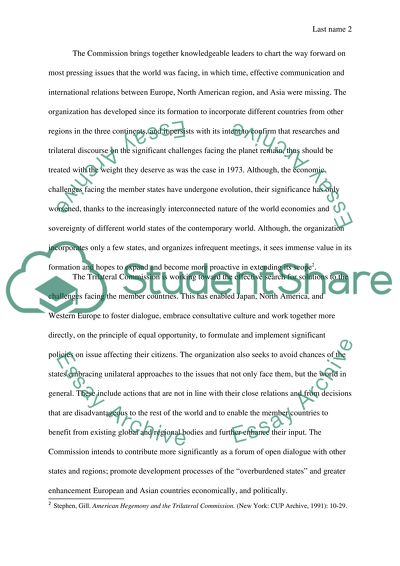Cite this document
(“Trilateral Commission Essay Example | Topics and Well Written Essays - 1500 words”, n.d.)
Retrieved from https://studentshare.org/history/1449224-trilateral-commission
Retrieved from https://studentshare.org/history/1449224-trilateral-commission
(Trilateral Commission Essay Example | Topics and Well Written Essays - 1500 Words)
https://studentshare.org/history/1449224-trilateral-commission.
https://studentshare.org/history/1449224-trilateral-commission.
“Trilateral Commission Essay Example | Topics and Well Written Essays - 1500 Words”, n.d. https://studentshare.org/history/1449224-trilateral-commission.


